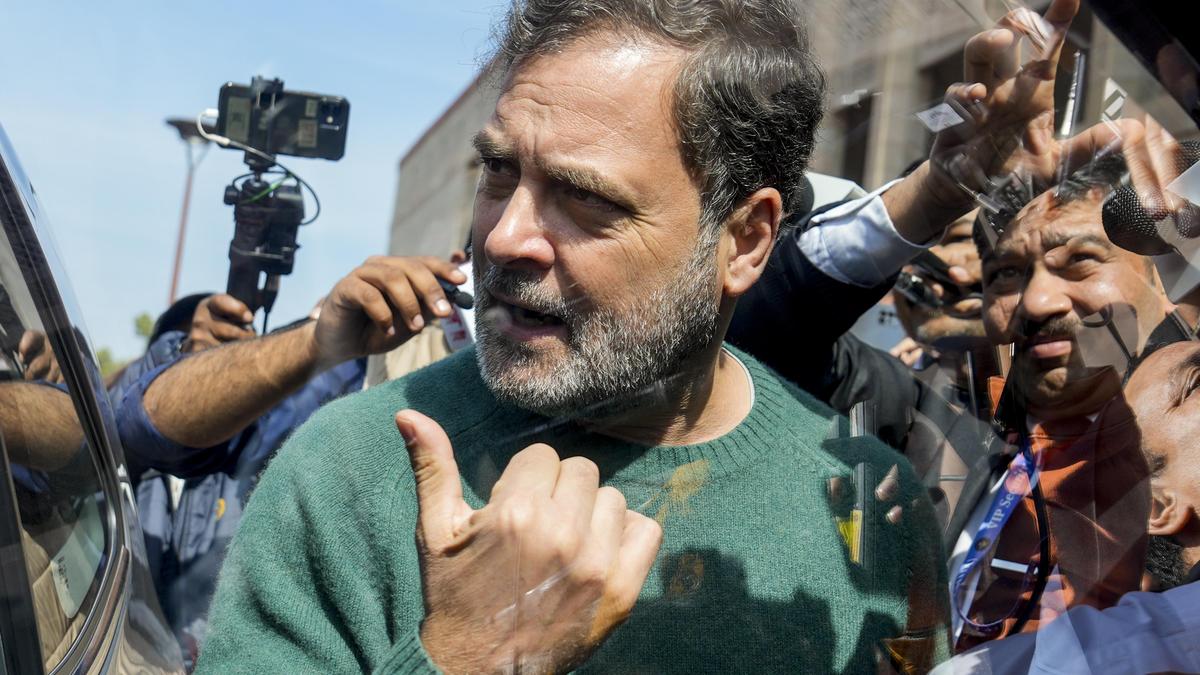
People visit homes adorned with festive lights as part of Blacktown City Council’s Diwali Lights Competition, in Nirimba Fields, Sydney, Australia on October 19, 2025.
| Photo Credit: Reuters
The Indian diaspora has been in the spotlight in various countries in recent weeks. A section of the diaspora has attracted attention for its display of faith and culture, crossing the limits of acceptable public behaviour in developed countries. The immersion of Ganapati statues in water bodies and the display of Deepavali fireworks in public places are examples.
After Deepavali revellers set two houses on fire in Edmonton, Canada, an official police statement said: “Light up your home, not your neighbour’s roof.” Three men have been charged with arson. Anti-immigrant and nativist protesters in Australia have singled out Indians, and in the U.S. and Canada, nationalist campaigners have a special focus on people of Indian origin these days.
The higher visibility of these incidents could also be because a section of Indians aggressively promotes cultural exhibitionism as a matter of community pride and right — for instance, in the use of firecrackers on Deepavali wherever they are. In the midst of all this, the Indian diaspora is being urged by some observers to advocate Indian positions in the United States.
The Indian national movement was spread around the world in British colonies, and in the U.S. and Canada, but the first Prime Minister, Jawaharlal Nehru, consciously decided to keep the new Republic aloof from PIO (person of Indian origin) politics in foreign countries. He did not want India to be seen as interfering in the domestic politics of another country through the diaspora, and he urged PIO to stay loyal to the countries that they had adopted.
Cultural nationalism
Issues of discrimination and racism were not narrow Indian concerns, and were raised as matters of universal human rights. This approach was consistent with the concept of territorial nationalism that guided Indian thinking then, as opposed to cultural nationalism.
The rise of Hindutva and a parallel fresh surge in the outflow of Indians expanded a global network of cultural nationalists from the 1990s. With the ascent of Narendra Modi as Prime Minister in 2014, this approach gained further momentum. Mr. Modi addressed diaspora rallies in several countries, most notably the U.S.
Exactly around this time, the fear of foreign interference in domestic politics became a central concern in the U.S., Canada, Australia, and several European countries. At various points in U.S. history, immigrants from specific regions or countries have been subjects of special scrutiny. In recent years, allegations of Chinese and Russian interference have dominated public discourse. Even Israel, which had a free pass as an autonomous actor in U.S. domestic politics for decades, is facing increased scrutiny and resistance. Not only left-leaning figures such as Bernie Sanders, but also Christian conservatives such as Marjorie Taylor Greene and media figure Tucker Carlson now call out Israel’s influence in U.S. domestic politics.
It may be noted that foreign influence operations per se are not illegal in the US, as long as they are openly registered as such.
Historically, Indian immigrants were considered a benign presence in the U.S. and diverse within, as followers of all religions and speakers of several languages. But state-sponsored attempts to turn the diaspora into active members of Indian strategy have clashed with a rising fear of foreign interference in the West. India has escaped the kind of hostility that Russia and China face, but there is enough to suggest that New Delhi is not going unnoticed on this count in the West.
Nationalist hype
India does not allow dual citizenship, but the U.S. does. India gave partial citizenship rights to PIOs through the Citizenship (Amendment) Act, 2003, by adding Sections 7A–7D to the Citizenship Act, 1955. This amendment introduced the Overseas Citizenship of India (OCI), offering lifetime visa-free entry, exemption from police registration, and rights similar to those of NRIs in economic, educational, and financial fields for the community. In 2015, the technical categories of PIO and OCI were merged as OCI. India presents this arrangement as “dual citizenship in spirit, but not in law”.
U.S. citizens can hold passports of more than one country, but some lawmakers, including Ms. Greene, are seeking more scrutiny on the issue. Fear of foreign interference in domestic politics is a universal concern of parties and state agencies in the West. Expectations from the diaspora to promote Indian interests in the U.S. or any other country must account for the reality that it is negotiating an era of heightened nationalism in host countries. Multi-alignment may not work for diaspora members always. After all, nationalist hype is not an exclusive preserve of India.
Published – October 28, 2025 09:01 pm IST

